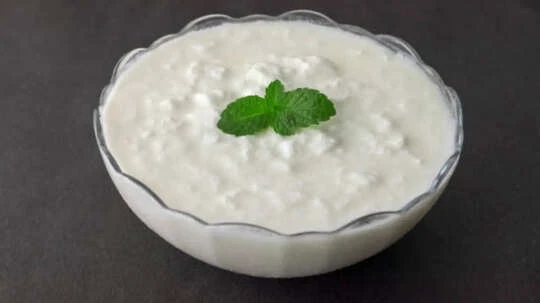Dahi or curd is one of the healthiest foods with several benefits for humans. While it is considered a cold food, many people refrain from eating curd in the winter months, thinking it would make them fall ill.
Curd, also known as yogurt, is a nutritious probiotic food loaded with protein, vitamins, and minerals, and is low in carbohydrates. It also has various forms like Buttermilk or raita, and all of these can be consumed with meals to improve flavour and speed up digestion in every season.
Should you eat curd in winter?
As per Ayurveda, curd can be avoided during colder months as it increases the secretion from your glands, which further increases mucus secretion too. Dahi is Kapha-Kar in nature, which makes it difficult for people who already have respiratory issues like asthma, sinus, cold, and cough. Thus, Ayurveda advises avoiding curd during the winter and especially at night.
However, according to doctors, dahi is always helpful for those who experience digestive issues – especially in winter. During the winter months, most parents of small children or the elderly are often wary about eating curd, especially at night. However, it is a myth. Here’s why:
Curd boosts immunity
In colder months, especially when pollution levels are at their peak, your immunity levels go down, making you prone to flus and viral infections. That is when curd comes in handy. It is a powerful immune system booster that contains anti-inflammatory properties and increases the production of white blood cells.
And so, it is essential to encourage children to consume curd in any form as long as it is served at room temperature rather than cold.
Helps in weight loss
Consuming good fats is just as crucial to weight reduction as exercise. Consuming curd prepared from skimmed or low-fat milk won’t make you fat or increase your intake of saturated fats. An ideal combination of nutrients for improved absorption, curd also contains calcium, vitamin D, potassium, and protein in addition to fat.
It’s good for nighttime as well
Curd is a delicious side dish during dinner in all seasons. It is super calming rather than discomforting the digestive system as it aids in your brain’s release of the special amino acid tryptophan, which relaxes the body and aids in the sleep-wake cycle.
Boosts skin health
Winter months are usually bad for your skin as it becomes dry, itchy, and inflamed. Dahi is known for its ability to give skin a healthy and radiant look as it naturally hydrates the skin, preventing dehydration.
Great for heart health
Curd aids in heart-health improvement, despite the fact that many people may be misled by its fat content. It helps to lower blood pressure and hypertension while raising HDL, or good cholesterol. Blood pressure and cholesterol are both significant risk factors for heart disease.
Hidden side effects
A few side effects would include:
Digestive distress
For those who are lactose intolerance, curd can lead to bloating, gas, and diarrohea due to its high lactose content. Even for others, curd is considered heavy to digest, and overconsumption, particularly at night when metabolism slows, can lead to indigestion and discomfort.
Increased mucous production
Ayurveda says curd increases the Kapha dosha, which is associated with coldness and mucus.
Inflammation and joint pain
The sour and heavy nature of curd can increase inflammation in the body. People with inflammatory conditions like arthritis or chronic joint pain may experience heightened symptoms and stiffness after frequent consumption.
